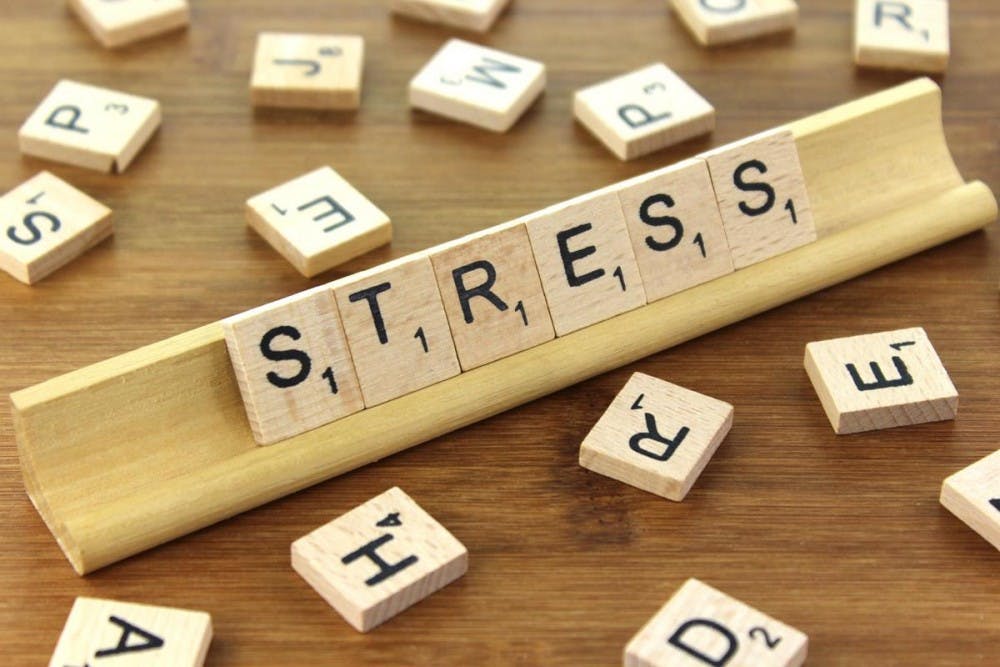
I made a mistake last semester. Despite my terrible experience freshman year, I decided to take three writing-intensive classes again. Moreover, I began working with a new student organization, while doubling down on my commitment to another. Additionally, at my work-study job, a full-time employee was preparing to retire, so I accepted more hours in order to keep everything running smoothly in the office.
For the majority of the semester, I ended up working up to 70 hours a week. I know plenty of people who could easily manage this workload, some even thrive off of it. What's important is that I could not.
However, as I watched people with 18 credits, work-study, research and any number of clubs still have time to go out on the weekends, I saw nothing wrong with the amount of work I was giving myself. In fact, due to the struggles I was having with what I perceived to be relatively little work, I was convinced that I was on the lazier side of Hopkins.
I constantly thought about all the other stuff I could be doing if I wasn’t so “lazy.”
If I was just able to make it up to 4 a.m. every night, then I might have enough time for research.
If I could wake up at 7:00 a.m. to do my readings before class, then my afternoons would be free to participate in more clubs.
If I could just force myself out of bed in the morning, maybe I could make this all happen.
I was so convinced that my stress and anxiety was just due to my own degeneracy, I thought the only solution was to overwork myself more so that I wasn’t behind. The problem wasn’t that I just had too much work to finish but, rather, that I was behind, and as soon as I caught up, I would be fine. In the moment I didn’t recognize that constantly being behind was a symptom of having an overloaded schedule.
As I failed to accept that I was working too much, I also failed to see the negative impacts it was having on my life and my relationships. Over the summer I lost 30 pounds, putting me at my lowest weight since my sophomore year of high school. I was extremely proud of that accomplishment.
By October I was the heaviest I have ever been. Additionally, looking back on the semester, I could see myself progressively becoming a meaner person. For my entire life, compassion and understanding have been the central tenants on which I base all of my actions on, but throughout the fall, those two qualities disappeared from the forefront of my mind.I went home after finals hoping to get a chance to recharge. I can honestly say that I felt better.
Having a chance to just be there in the moment and experience the world around me instead of constantly going over the to-do list in my head was the happiest I had been since the summer. I planned on returning to campus at the beginning of January and taking it easy with 30 hours at my work-study job.
However, when I came back, it was different. The 30 hours I put into my calm office job felt harder than the 70 stressful hours I had put into the previous semester.
It got so bad that I called in sick for the last week, even though I knew how much they relied on my work. For the rest of Intersession, I spent my entire day in bed, constantly thinking about how all I needed to do was catch up on my work and I’d be fine.
I was burnt out. As I lied around I began to realize that by filling every waking hour with work, as well as those hours which realistically shouldn’t have been waking, I hadn’t given myself any opportunity to release the stress that builds up naturally over the course of semester.
The psychomotor retardation I was experiencing was nothing but the result of a four month build-up of tension that never had a chance to be released.
This kind of burnout isn’t uncommon among people our age, but to have it happen more than two years before graduation obviously isn’t a path to success.
As this semester progress, I am continuing to recognize my limits and the value of pacing oneself. I’m taking a lighter than normal class load to recharge and committing myself based on what I perceive I can handle, rather than basing it off of my idealized view of a successful Hopkins student.
I have already begun to see the positive impact this has, as I rebuild relationships and continue to put myself in a better space. Of course, I don’t have life figured out, but I’m confident in the action I’m taking and leading a sustainable lifestyle.

















